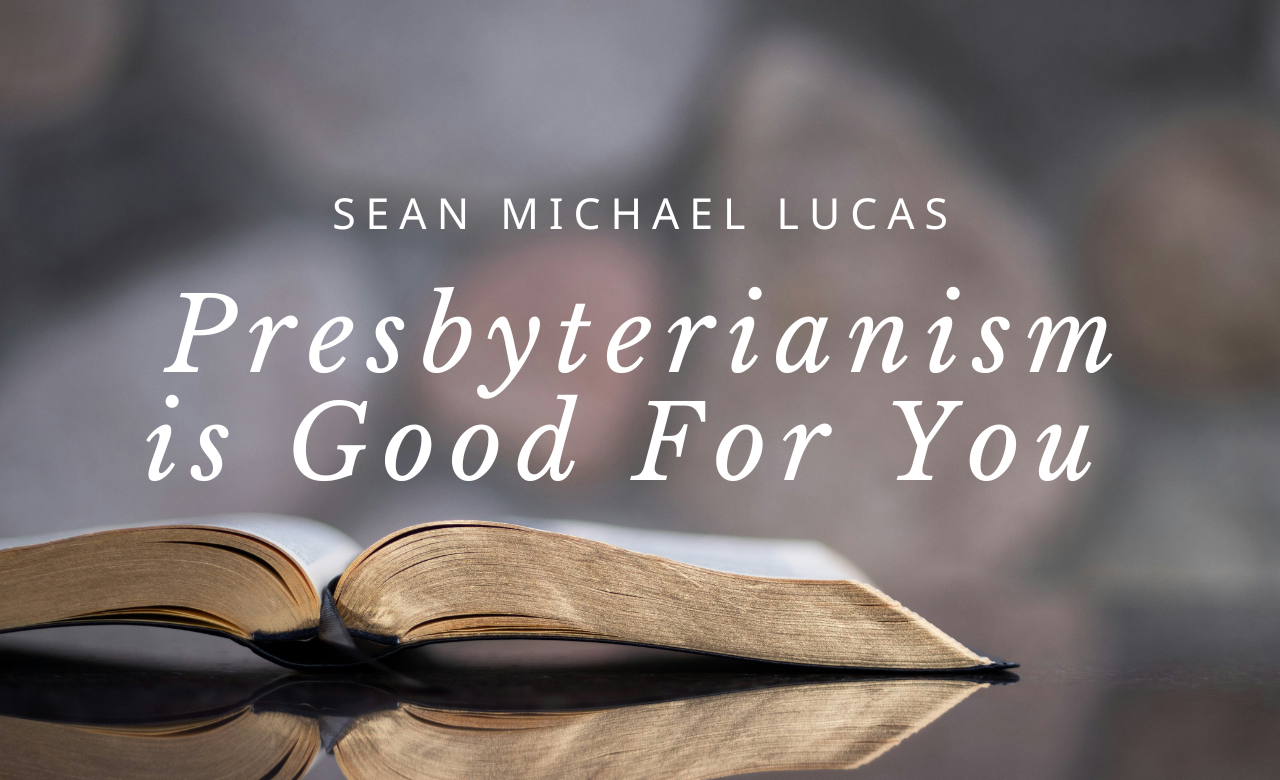In June, P&R Publishing will be releasing my next book, Presbyterianism, in the Blessings of the Faith series. Each book in the series focuses on how its particular theme is good for God’s people—Reformed theology, Reformed confessionalism, church membership, prayer, preaching, and so forth. My book touches on many of these themes and ties them together under the heading of Presbyterianism.
In a previous generation, those committed to the doctrines of grace preferred calling themselves “Reformed.” That’s a good title and I wouldn’t want to give it up. But in the larger Reformed world, I think it is vital for us to see that being Presbyterian means something more—and that it is good for God’s people to be Presbyterian. What follows is a brief introduction to the book, which should give you a sense of what the entire book aims to achieve.
For over twenty years as a pastor, I’ve conducted new members’ classes in the Presbyterian Church in America (PCA) congregations where I’ve served. After explaining the Gospel, I’ve gone on to explain what makes Presbyterian beliefs, practices, and stories unique, how Presbyterians are different from other denominational flavors, and ultimately how to join our congregation and find a place in our life together. Through these classes, I’ve seen hundreds and hundreds of people join our Presbyterian churches. But there’s one thing I haven’t done.
I’ve not told anyone why being Presbyterian is good for you.
I guess I assumed that it was. After all, with my family, I made the journey from evangelical and Fundamentalist circles—with a heavy Baptist influence—into Presbyterianism. I’ve spent a great deal of time writing about, talking about, and ultimately preaching and teaching Presbyterian beliefs, practices, and stories, hoping to inculcate Presbyterian identity into our children and people. Of course, Presbyterianism is good for people, isn’t it? After all, it is good enough for me.
There are some voices today that question this. Questions that come not simply because of denominational jockeying—different visions or identities that bump up against each other, Baptists, Lutherans, Methodists, non-denominationals all setting out their version of what Christianity is all about.
No, the questions are more significant: can Presbyterianism really protect the weak and wounded? Don’t all denominations ultimately become corrupt, self-protective, theologically unfaithful? Can’t someone simply hold to “Reformed theology” without holding on to Presbyterian polity? How does oversight by pastors and elders translate to life in the pews and to growing in God’s grace—isn’t this just an example of hierarchical, patriarchal power imbalance keeping people enchained to a group of elites?
Those are real questions, hard questions, ones that must be answered. As you will read, I believe there are answers to these questions, and more besides—and that these answers come from a fully integrated understanding of what Presbyterianism is all about.
First, I want to lay out for you what I take to be the way Presbyterian identity is formed and shaped. Presbyterianism has a certain set of beliefs. While these beliefs are not unique in the history of Christianity, the way Presbyterians have framed them might be. As we discuss those core understandings of God, humans, sin and salvation, community, hope, we will see that they give rise to practices of piety, worship, and especially polity that reinforce those beliefs. Presbyterian beliefs can’t be divorced from practice, nor can Presbyterian practices be divorced from beliefs; they are integrated together. There are a series of historical accounts of why these beliefs and practices have worked together and make sense; I will only touch on these stories along the way, but we can’t forget them completely either. All of this works together to shape what it means to be Presbyterian—and that’s a good thing!
From there, we will come to the three central chapters of the book. These have a Trinitarian shape. We will come first to the idea that God is sovereign. If Presbyterians are known for anything, it is our commitment to God’s sovereignty. This emphasis upon God’s sovereignty is good for us because it teaches us that we are dependent beings who rest in the hands of a Father who rules the world. God’s sovereign rule displayed in creation, providence, and election gives Presbyterians a calming comfort because our world belongs to God and our God loves us and his world.
Next, we will see that Christ is king. Our old Covenanter forefathers declared that they were “for Christ’s crown and covenant.” Christ’s crown, his present rule over the world and his church, is the result of his resurrection and ascension: God’s sovereign rule is exercised specifically through Jesus Christ. Thus, Christ is Lord over us as individuals, forming us as disciples; he is Lord over his church, ruling through his elders in the courts of his church; and he is Lord over his world, sending us into the world to witness and work in every place we find ourselves. Christ’s Lordship offers us Presbyterians a sense of protection because Christ’s crown is honored and his Word obeyed.
Finally, the Holy Spirit continues to work to shape our lives today. When Christ ascended to the Father’s right hand, he promised to send his Spirit to do specific work on his behalf among his followers. The Holy Spirit does this work through the corporate means of grace—Word, sacrament, and prayer—and uses these means to call us to himself, convert us, and sanctify us. Presbyterianism’s commitment to the ordinary means of grace in the context of corporate worship offers a sense of expectation because the Spirit promises us his Word to convict, convert, and conform us to Christ’s image.
From there, I will try to answer some of the most frequently asked questions about Presbyterianism that I’ve received over decades of ministry. While some of my answers will be shaped by the fact that I’m a PCA pastor, I trust that through appeals to Scripture and our doctrinal standards (as well as a little Presbyterian history), you will see that these are not simply my opinions but represent the mainstream of historic Presbyterianism.
In the end, though, my goal is to persuade you that Presbyterianism is good for you, your soul, your families, and ultimately for God’s world. Let’s see how that’s true together.
Presbyterianism by Sean Michael Lucas comes out June 2025. You can order/pre-order here.
Born in Stratford, New Jersey, Sean moved up and down the eastern seaboard as a child. He graduated from Bob Jones University (BA, 1993; MA, 1994) and Westminster Theological Seminary (PhD, 2002). He was ordained as a Presbyterian minister in 2003, then served on the pastoral staff of Community Presbyterian Church (PCA), Louisville, Kentucky, and Covenant Presbyterian Church (PCA), St. Louis, Missouri. In 2009, he became Senior Pastor of the First Presbyterian Church, Hattiesburg, Mississippi, where he served until coming to serve as senior pastor at Independent Presbyterian Church, Memphis, Tennessee in 2017.
Sean has taught at two theological seminaries. He is presently the Chancellor’s Professor of Church History at Reformed Theological Seminary, where he has taught since 2011. Prior to that, he was chief academic officer and associate professor of church history at Covenant Theological Seminary, where he served from 2004 to 2009.
Sean has also written many books, including On Being Presbyterian: Our Beliefs, Practices, and Stories (2006); God’s Grand Design: The Theological Vision of Jonathan Edwards (2011); J. Gresham Machen (2015); and For a Continuing Church: The Roots of the Presbyterian Church in America (2015). He and his wife Sara have four adult children: Samuel, Elizabeth, Andrew, and Benjamin.
Photo by Aaron Burden on Unsplash

